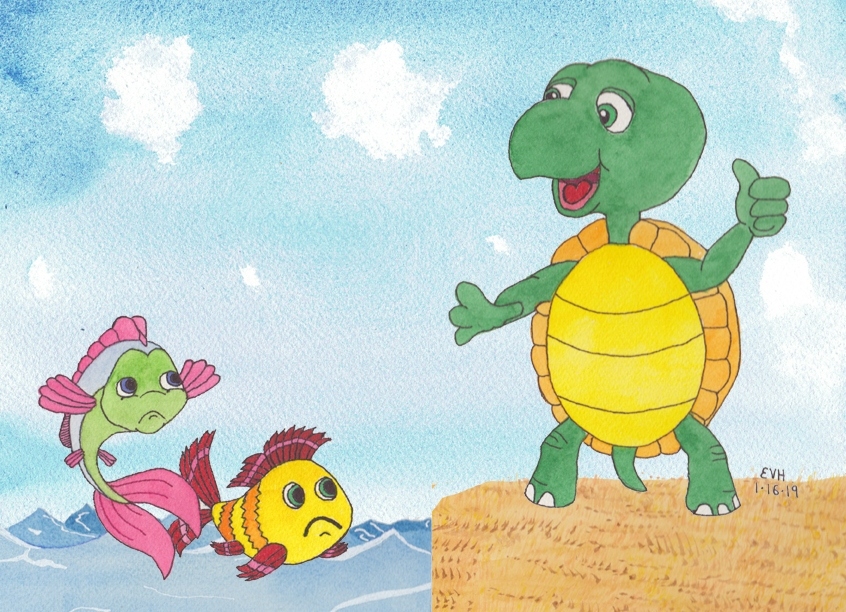
Jataka 205
Gaṇgeyya Jātaka
Belonging to the Ganges
as told by Eric Van Horn
originally translated by William Henry Denham Rouse, Cambridge University
originally edited by Professor Edward Byles Cowell, Cambridge University
I think the meaning of the story-in-the-present is clear. The two vain, young monks are told by the elder that he is more beautiful than they. It is because of his good qualities. In the teaching of the Buddha, the only kind of beauty worth having is a good heart.
“Fine are the fish.” The Master told this story while he was living at Jetavana. It is about two young monks.
These two young fellows, we are told, belonged to a good family from Sāvatthi, and that they had embraced the Buddha’s teachings. But they, not realizing the impurity of the body, sang the praises of their beauty and went about bragging about it.
One day they fell into a dispute about this. “You are handsome, but so am I,” they said to each other. Then they saw an elder monk sitting not too far away, and they agreed that he was likely to know whether they were beautiful or not. So they approached him and asked, “Sir, which of us is beautiful?” The Elder replied, “Friends, I am more beautiful than either of you.” At this the young men ridiculed him and went off, grumbling that he had told them something they did not ask, but he would not tell them what they did ask.
The Saṇgha became aware of what had happened. One day, when they were all together in the Dharma Hall, they began talking about it. “Friend, how the elder shamed those two young fellows whose heads were full of their own beauty!” The Master came in and asked what they were discussing. They told him. He replied, “This is not the only time, monks, that our friends were full of the praises of their own beauty. In past times they used to go about boasting of it as they do now.” And then he told them this story from the past.
Once upon a time, during the reign of Brahmadatta, King of Benares, the Bodhisatta became a tree sprite on the bank of the Ganges. At the point where Ganges and Jumna (also called the “Yamuna River”) meet, two fish met. One was from the Ganges and one was from the Jumna. “I am beautiful!” one of them said, and they started to argue about their beauty. Not far from the Ganges they saw a tortoise lying on the bank. “That fellow will decide who is beautiful!” they said, and they went up to him. “Which of us is beautiful, friend tortoise,” they asked, “the Ganges fish or the Jumna fish?” The tortoise answered, “The Ganges fish is beautiful, and the Jumna fish is beautiful, but I am more beautiful than both of you.” And to explain his meaning, he uttered the first verse:
“Fine is the fish of Jumna stream, the Ganges fish is fine,
But a four-footed creature, with a tapering neck like mine,
Round like a spreading banyan tree, must all of them outshine.”

Figure: “I am more beautiful than you!”
When the fish heard this, they cried, “Ah, you rascally tortoise! You won’t answer our question, but you answer another one!” and they repeated the second verse:
“We ask him this, he answers that, indeed a strange reply!
By his own tongue his praise is sung, I like it not, not I!”
When this discourse was concluded, the Master identified the birth: “In those days the young monks were the two fish, the elder was the tortoise, and I was the tree sprite who saw the whole thing from the bank of the Ganges.”
